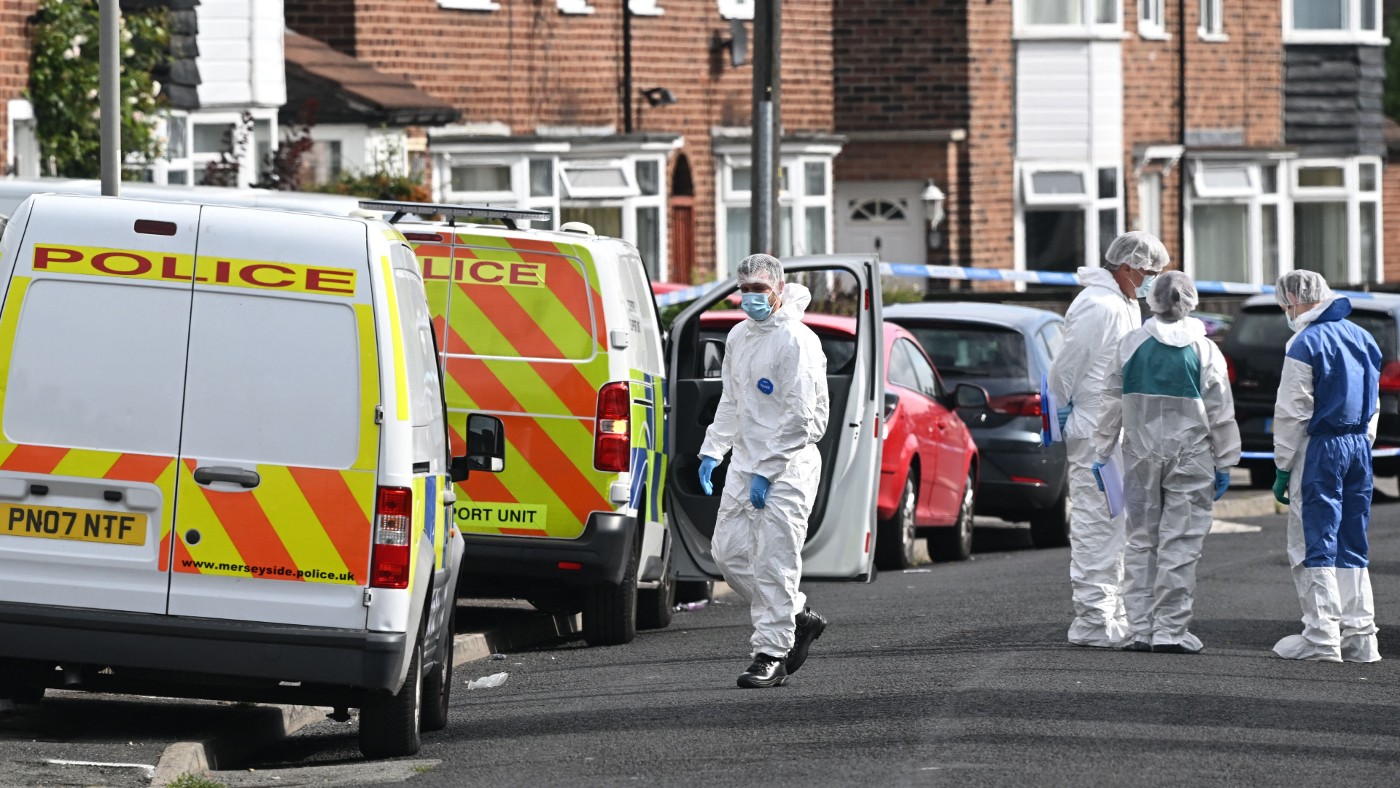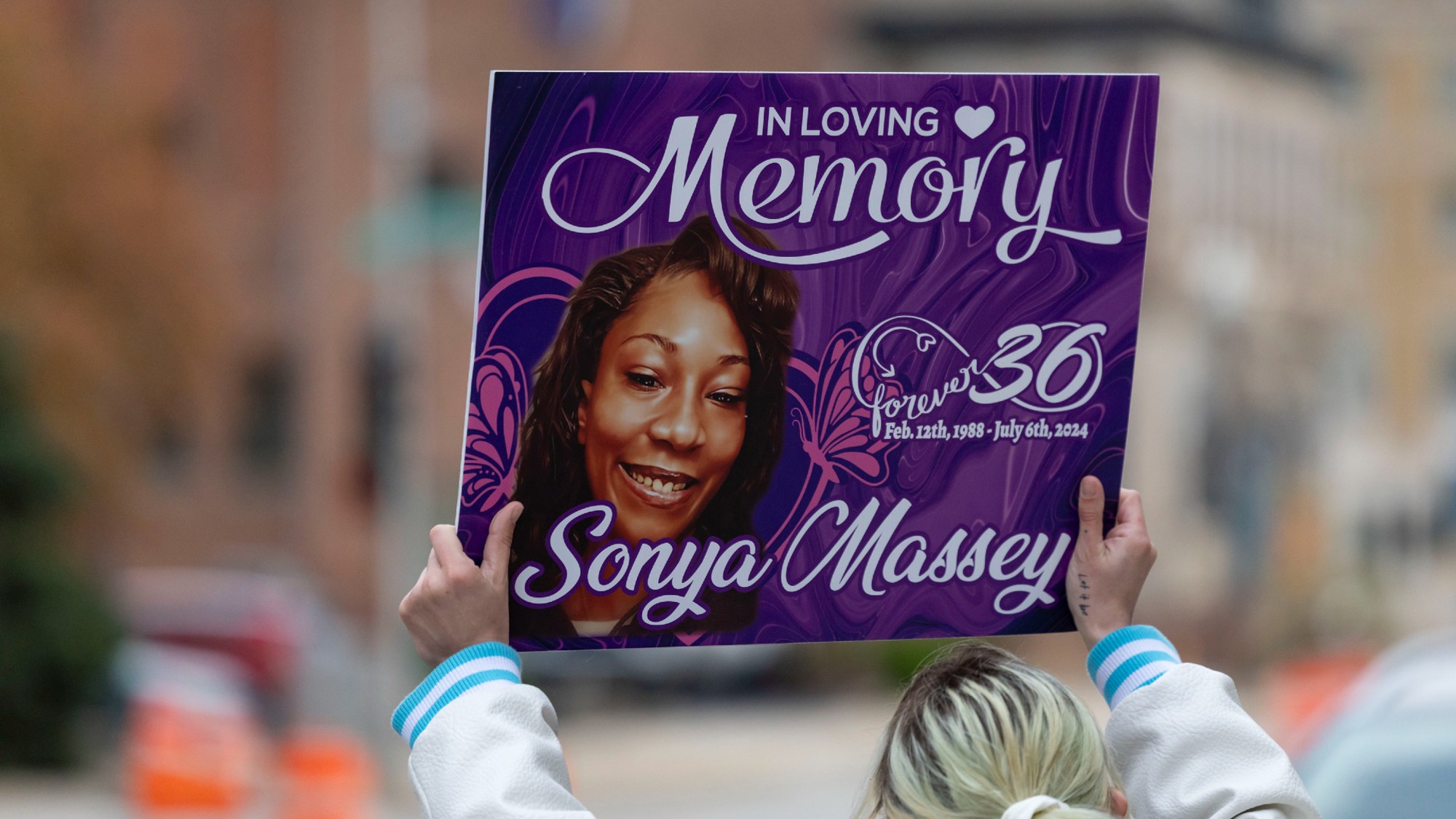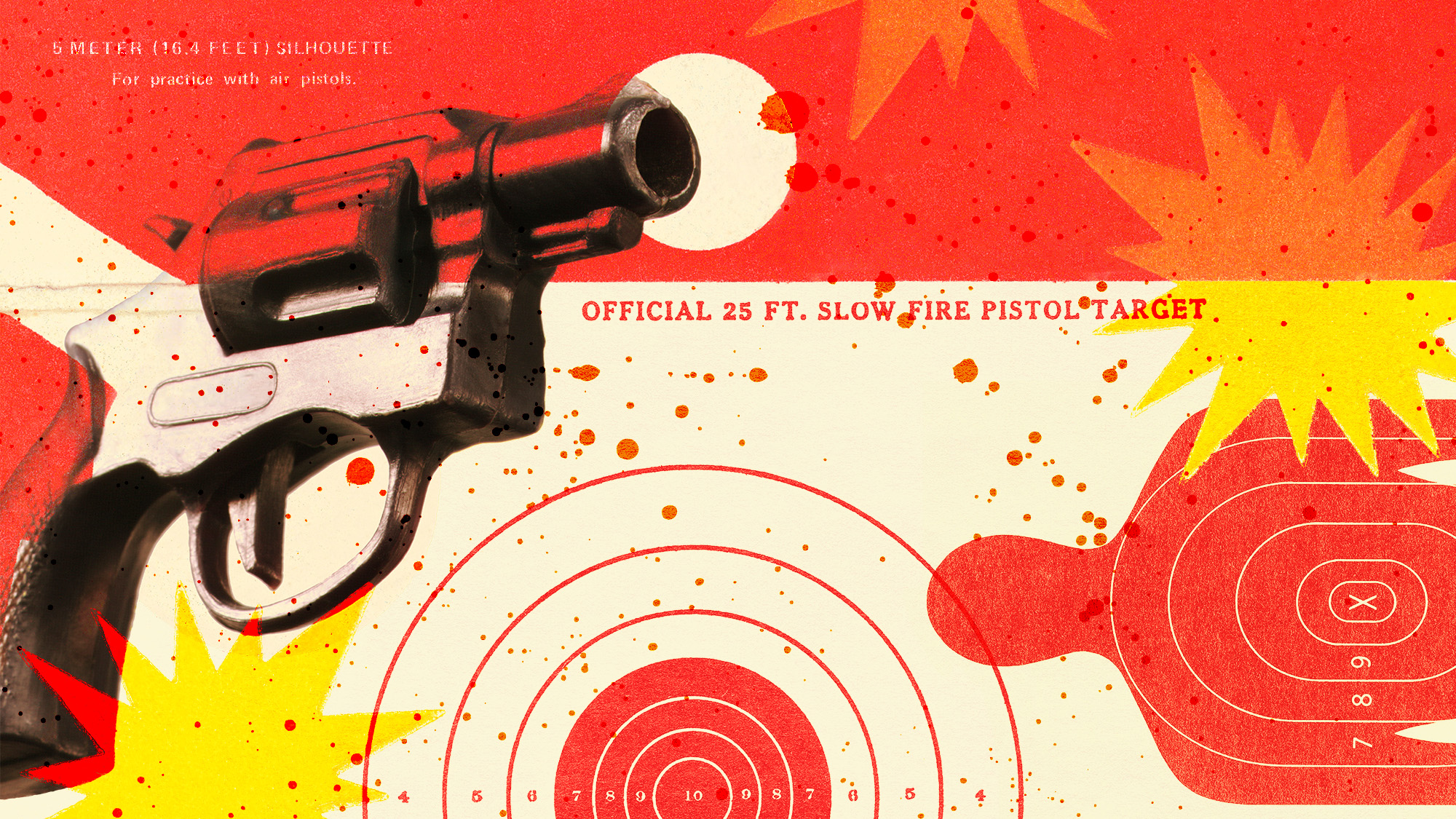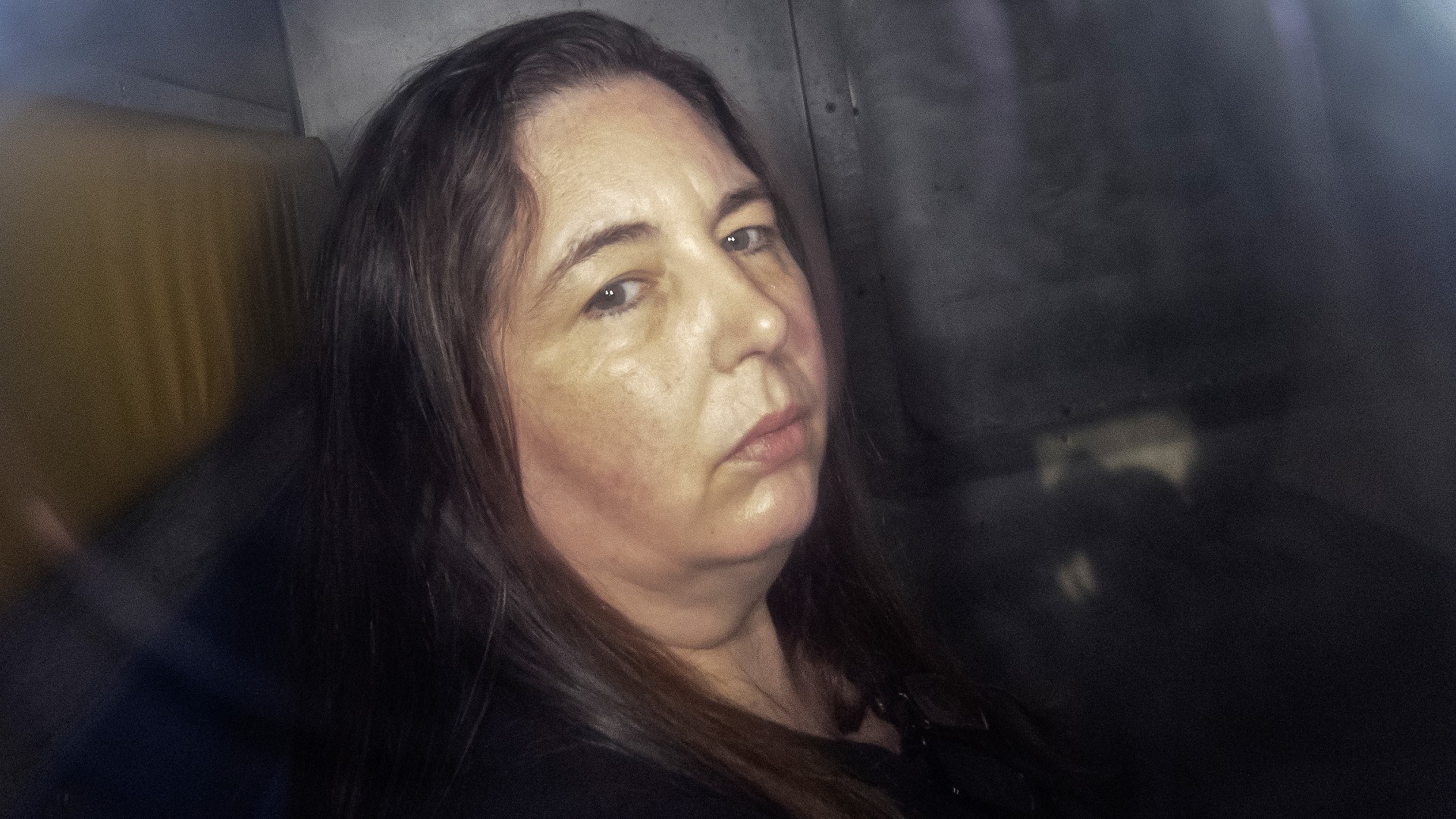What does the shooting of Olivia Pratt-Korbel mean for Liverpool?
Debate over whether gangs are just a ‘minute minority’ in the city or a more pervasive problem

A free daily email with the biggest news stories of the day – and the best features from TheWeek.com
You are now subscribed
Your newsletter sign-up was successful
The murder of nine-year-old Olivia Pratt-Korbel, who died hiding behind her mother as a gunman opened fire in her family home, has both united the community in Liverpool and led to safety fears among locals.
Officers were called to a house in the Knotty Ash area of the city at around 10pm on Monday, following reports that an unknown man had fired a gun inside the property. Olivia was taken to hospital in a critical condition and later died.
Police have vowed not to rest until they find Olivia’s killer – who is still at large and may have fled overseas. Convicted burglar Joseph Nee, 35, has been named as the intended target of the shooting. Nee, who was shot in the upper body in the attack at Olivia’s home, was freed from prison on licence last year but will be returned to jail once he is out of hospital.
The Week
Escape your echo chamber. Get the facts behind the news, plus analysis from multiple perspectives.

Sign up for The Week's Free Newsletters
From our morning news briefing to a weekly Good News Newsletter, get the best of The Week delivered directly to your inbox.
From our morning news briefing to a weekly Good News Newsletter, get the best of The Week delivered directly to your inbox.
Olivia’s murder has led to fears of a new wave of violent crime in Merseyside and concerns that progress on gang violence in the region is being eroded.
Is gun violence on the rise in Liverpool?
The data on this is conflicting. Over the last week, four people have been killed on Merseyside, noted The Guardian’s Archie Bland. One victim was stabbed and three were shot.
But although that “terrible immediate toll” takes the number of people killed in the region this year to 14, this week should be “set against the wider picture”, he added.
The last fatal shooting before this week had been more than a year ago. Last year, the area was seventh in a table of total firearm offences in England and Wales, and placed lower than that on a per capita basis.
A free daily email with the biggest news stories of the day – and the best features from TheWeek.com
The 43 recorded shootings last year was the lowest number in more than 20 years and the “story of gun violence in Liverpool” over the last decade has been one of a “gradual downward trajectory”, explained Bland.
It’s worth noting, however, that many regions saw a reduction in violence during the Covid pandemic. The BBC’s home affairs correspondent, Tom Symonds, wrote that there are “very early signs” that progress on firearms crimes might have stalled in Merseyside, where “shots have been fired at houses, vehicles and people”.
Are we seeing more organised crime?
The city’s “sickening gang violence” could be a result of a police campaign to tackle organised crime in the area, reported The Mirror.
More than 200 “mid and high ranking Merseyside criminals” have been arrested over the last two years and a similar number fled to countries like Holland, Spain and Dubai as they feared arrest in what is the UK’s most extensive police investigation into organised crime.
But as a consequence, younger criminals are “backfilling” the vacancies left by hundreds of older gangsters who have been arrested or are on the run, experts told the paper. People who work with young offenders in the city say criminals “terrorising the community” have become “younger, more brazen and more violent”.
Does this mark the end of ‘grass culture’?
"People in our city have paid the ultimate price of loss of life,” Molly McCann, a mixed martial artist who works with the Weapons Down Gloves Up scheme to keep young people safe and off the streets, told the Liverpool Echo. “It’s been possibly one of the worst weeks in the city’s history, it’s what it feels like.”
Calling on anyone with information about Olivia’s murder to contact the police, she said: “You’re not being a grass, you’re doing the right thing. If it was me in that position, I would be doing the same thing.”
Bland wrote in The Guardian that “the idea of a ‘no-grass’ culture – a reluctance to help police with any investigation, no matter how serious the crime – is persistent in Liverpool”, and “intimately connected to the city’s history of gang violence”.
In 2017, Stuart Kirby, professor of policing and criminal investigation at the University of Central Lancashire, told the BBC that this prioritisation of loyalty over justice has been passed down over “generations and generations”.
However, Bland added, there is now “every sign that members of the public are determined to help bring the perpetrator to justice”, with police investigating Olivia’s murder understood to be “increasingly confident”.
Residents local to Olivia disagreed that a “no-grass” culture persists in Liverpool, telling The Guardian that the community “appears united in helping to find Olivia’s killer”.
Peter Mitchell, chief executive of the Big Help Group, which runs a local community centre, told The Independent that although Liverpudlians often “feel a level of intimidation that if they speak out, that may put themselves at risk”, the city has “an in-built resilience and in-built sense of right and wrong” so “if we can provide a safe space, they will come forward”.
Mitchell added that Liverpool’s gangs were a “minute minority” in an otherwise “brilliant” city. “They are cowards,” he said. “We will not allow them to win.”
-
 Health insurance: Premiums soar as ACA subsidies end
Health insurance: Premiums soar as ACA subsidies endFeature 1.4 million people have dropped coverage
-
 Anthropic: AI triggers the ‘SaaSpocalypse’
Anthropic: AI triggers the ‘SaaSpocalypse’Feature A grim reaper for software services?
-
 NIH director Bhattacharya tapped as acting CDC head
NIH director Bhattacharya tapped as acting CDC headSpeed Read Jay Bhattacharya, a critic of the CDC’s Covid-19 response, will now lead the Centers for Disease Control and Prevention
-
 Ex-Illinois deputy gets 20 years for Massey murder
Ex-Illinois deputy gets 20 years for Massey murderSpeed Read Sean Grayson was sentenced for the 2024 killing of Sonya Massey
-
 Why have homicide rates reportedly plummeted in the last year?
Why have homicide rates reportedly plummeted in the last year?Today’s Big Question There could be more to the story than politics
-
 How the Bondi massacre unfolded
How the Bondi massacre unfoldedIn Depth Deadly terrorist attack during Hanukkah celebration in Sydney prompts review of Australia’s gun control laws and reckoning over global rise in antisemitism
-
 3 officers killed in Pennsylvania shooting
3 officers killed in Pennsylvania shootingSpeed Read Police did not share the identities of the officers or the slain suspect, nor the motive or the focus of the still-active investigation
-
 Trump lambasts crime, but his administration is cutting gun violence prevention
Trump lambasts crime, but his administration is cutting gun violence preventionThe Explainer The DOJ has canceled at least $500 million in public safety grants
-
 Aimee Betro: the Wisconsin woman who came to Birmingham to kill
Aimee Betro: the Wisconsin woman who came to Birmingham to killIn the Spotlight US hitwoman wore a niqab in online lover's revenge plot
-
 Australian woman found guilty of mushroom murders
Australian woman found guilty of mushroom murdersspeed read Erin Patterson murdered three of her ex-husband's relatives by serving them toxic death cap mushrooms
-
 Crime: Why murder rates are plummeting
Crime: Why murder rates are plummetingFeature Despite public fears, murder rates have dropped nationwide for the third year in a row